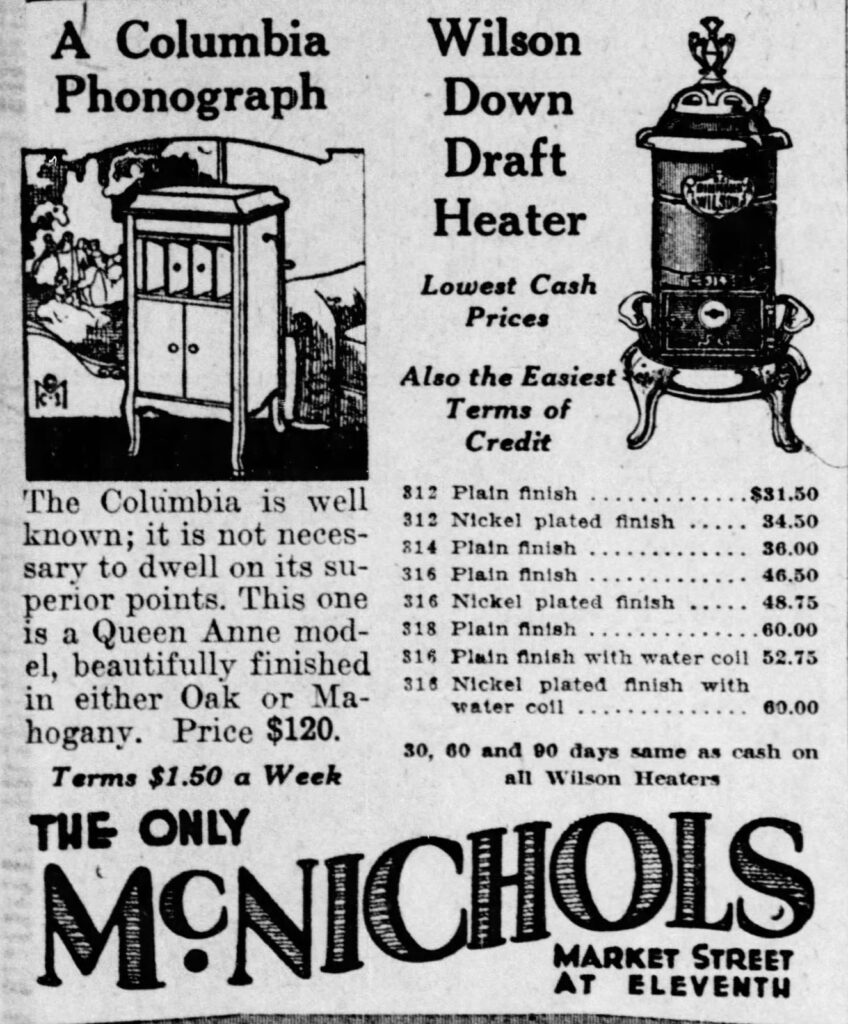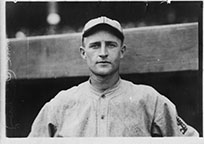- Cards Joyful Because Bill Doak Can Continue to Use Spitter
- Expected Legislation Makes Certain Reappearance of Big Blond in Star Role.
November 30, 1920 Age 29
By James M. Gould The St Louis Star and Times
While no official action has been announced or taken, there seems good ground for believing that both National and American League rule makers will revoke, in part, the legislation against the spitball determined on last year. In other words, no more wet heavers will be allowed in either league, but those already in and listed as possessing this delivery will be allowed to operate as usual. This news is particularly pleasing to Cardinal officials and to Cardinal fans, as it means the certain return of Blond Bill Doak in a leading hurling role next season. Bill is frank in admitting that, without his “spltter,” he is not much of a pitcher. Stan Coveleskie of the world champion Cleveland Indians is just as frank about it.
Doak Had Great Year.
From the very beginning of the 1920 season, the popular Pittsburgher gave promise of a great year and he fulfilled every promise. Consistency was Bill’s middle name and he was in there in turn regularly. Feared by every team in the circuit, Doak seemed to go particularly well in his home town and the Pirate fans would almost throw up their hands whenever the blond-thatched Cardinal was announced to work.
Just how well Doak went last year can be gleaned from the statement that, in 1920, for the first time in his career, he was credited with being on the long end of twenty contests. Bill reached this goal toward the end of the season when he worked a game against the Braves in Boston. Bill was not feeling any too well that day, but stayed in until after the fifth, when he was forced to retire. He was ahead at the time and the Braves, playing their usual Iamb-like game, could not overcome the advantage Doak handed his relief man. Once before in 1917 Doak had a better won-and-lost record when he won 19 and lost 6, but he had never attained the 20-game height before, and consequently was proud as proud could be.
Misses Hall of Fame.
On August 10. 1920, Doak pitched what must be considered his greatest game and, in so-doing, missed entering the pitchers’ no-hit Hall of Fame by the narrowest of margins. The Cards were playing the Phils at Philadelphia and Doak, in the course of the game, was opposed by Hubbell and young Betts.
Doak opened the game by handing a free pass to Paulette. Then he retired the next eighteen men in order, not a soul except Paulette reaching first in the first six sessions. ln the seventh he walked Lebourveau to start. Rawlings sacrificed the Frog along and here came Doak’s tough break.
Cy Williams, somewhat of a slugger, failed to crash one hard, but rolled a ball past the pitcher’s box and about fifteen or twenty feet in fair territory, from first base. Fournier went a long way for the ball, but Doak, naturally expecting Hornsby to take the grounder and Fournier to take Hornsby’s throw, did not start to cover. When he did rush to first, he was too late and Williams had to be credited with a hit. The play could be scored no other way. Lebourveau scored on Meusel’s long liner to center, but the run didn’t hurt, while the very shady hit did. Not a Phillie reached first in the eighth or ninth. The Cards won the game, 5-1, but, to the end of his career, Bill will regret that puny safety of Cy Williams.
A Most Popular Player.
While the Cardinal club Is composed of men of real character, it is doubtful if any is as popular with everyone as is Doak. Every player knows that he is not only efficient, but that he Is also most sincere. A clean-living gentleman, it would have been a positive crime had any gathering of rule makers made it impossible for him to continue in the profession which he graces so splendidly.
In character, as well as in efficiency, Blond Bill Doak is one of the St. Louis Cardinals’ greatest assets.
Products of the Day: Phonograph and Space Heater – 1920

